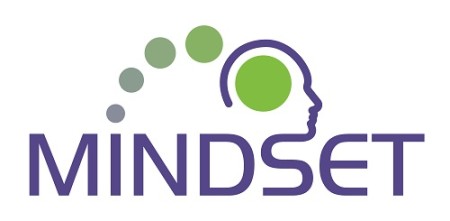 Guest article by Lawrence Friedhoff, MD, PhD
Guest article by Lawrence Friedhoff, MD, PhD
My work in Alzheimer’s disease therapeutics began about 20 years ago. After completing my medical training, I was interested in exploring another side of medicine—how new drugs are developed.
Attitudes toward dementia have changed drastically over the past two decades.
Back then, the term Alzheimer’s disease wasn’t widely used, nor was it viewed as a credible illness. Instead, people referred to the symptoms of Alzheimer’s as “senile dementia,” an inevitable consequence of aging that was considered untreatable.
In the early 1990s, I began working for a mid-size pharmaceutical company, and was placed in charge of finding promising new drugs to bring to market.
In looking through many drug candidates and speaking with the scientists who had invented them, I came across a molecule, “E2020,” that I suspected would be an effective treatment for Alzheimer’s disease. I obtained some development budget for E2020, and worked with a small team to get the molecule worldwide drug approval. About five years later, that drug became available to patients as Aricept (donepezil), which was then, and is still, the most widely used Alzheimer’s disease treatment.
Scientific and public attitudes about Alzheimer’s disease changed with the approval of Aricept and subsequent medications.
Doctors became more educated about the disease and its diagnosis. Patients and their caregivers became more optimistic about the development of even better treatments.
The medical and scientific communities want to answer that call. Recently, there has been a push to explore medicines targeting a particular protein, beta amyloid, which accumulates in the brain as we age, and is associated with dementia. The hope that these beta amyloid-targeted products could cure Alzheimer’s disease meant an enormous amount of time and money was put into their development. Unfortunately, these investigational drugs have not yet shown any convincing benefit to patients with Alzheimer’s disease.
Although scientists are still pursuing new beta amyloid treatments, I believe the scientific community is turning its attention back to neurotransmitter-targeted drugs, which, like Aricept, act on essential chemicals within the brain in order to augment the brain’s normal functions. I’m currently leading the development of one such drug, called RVT-101 [TCV Update 1/9/2020 URL unavailable], which has strong evidence of benefit to mild-to-moderate Alzheimer’s patients’ cognition and ability to perform daily living activities.
+ + + + + + + + +
The MINDSET Study for Mild-to-Moderate Alzheimer’s Is Open for Enrollment!
As a participant in the MINDSET study, Alzheimer’s patients and their caregivers can have access to study-related medical care from specialized teams in this field. Participants can continue to see their regular doctor(s) while participating in this study, and medical insurance is not required to participate.
Interested patients and caregivers are invited to visit AlzheimersGlobalStudy.com [TCV Update 1/9/2020 URL no longer active] and to see if they pre-qualify.
+ + + + + + + + +
RVT-101 appears to be very well tolerated and is an oral, once-daily pill, so it’s easy for patients to take. Based on the results to date, we believe RVT-101 has a good chance of becoming a widely-used drug for treatment of Alzheimer’s disease and other dementias. We are currently enrolling patients in a Phase III clinical trial of RVT-101, and we think it will be the final trial needed in order to get FDA approval and make the drug available to all patients. Until then, all patients who enroll in and complete our large clinical trial will have the opportunity to receive RVT-101 for up to one full year.
It’s important to understand that clinical trials are a fundamental part of getting new treatments to patients, and are especially important for Alzheimer’s disease drugs. Tests of Alzheimer’s disease treatments in animals have not been predictive of the results in human patients except in a few rare cases. Furthermore, clinical trials can provide benefit to both the patient and future generations: they provide patients an opportunity to get a new drug earlier than would otherwise be possible, and participants may contribute to the advancement of drugs that help other patients. As Alzheimer’s disease occurs more frequently in women than in men, women’s participation in clinical research is particularly important.
Dr. Friedhoff’s career in pharmaceutical R&D spans more than three decades. He has led teams that developed and obtained approval for six new drugs, including Aricept® (donepezil), the most widely used drug for the treatment of Alzheimer’s disease. Dr. Friedhoff is the Chief Development Officer at Axovant Sciences, Inc., a biopharmaceutical company focused on dementia solutions.








